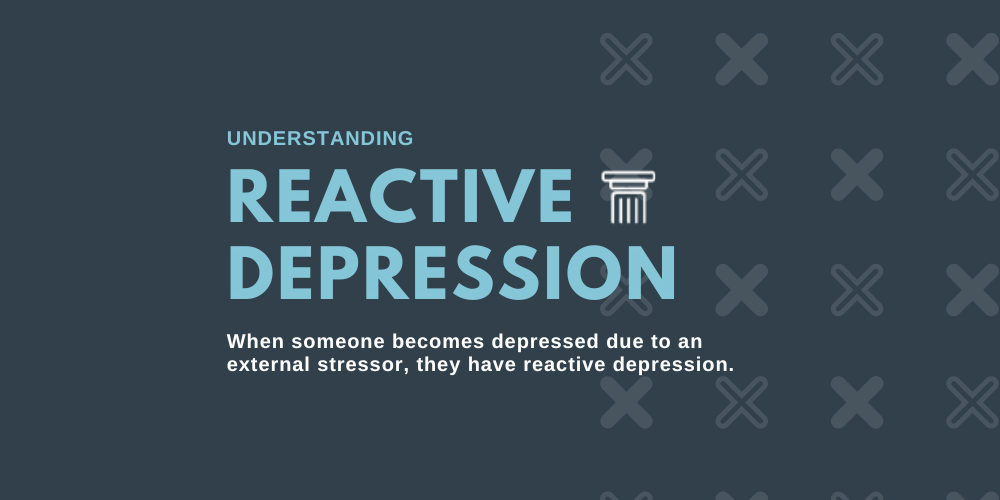While anyone can get sad, anxious and upset in response to unexpected circumstances, these symptoms are usually short-lived. However, if you have trouble adjusting to changes in your life, you might be struggling with reactive depression, also known as situational depression. Learn how this condition might affect you and how to cope.
What Is Reactive Depression?
The leading criterion for reactive depression is stress resulting from external circumstances, like a divorce, job loss or receiving a diagnosis of illness. In some cases, the events that trigger situational depression can be positive, like starting college or embarking on a new career. Though these changes can be exciting, they are also momentous enough to cause anxiety and inspire complex emotions like fear and self-doubt.
Situational Depression Symptoms
Many warning signs of reactive depression mirror the symptoms of major depressive disorder.
- Emotional changes like sadness and irritability
- Apathy and listlessness
- Withdrawing from family, friends and hobbies
- Disrupted eating or sleeping patterns
- Physical and mental fatigue
- Pessimism and hopelessness, including thoughts of suicide
- Physical aches and pains
- Unhealthy lifestyle choices like substance abuse
When these symptoms are mild or short-lived, they are typically not a cause for concern. But if they consistently interfere with your daily routine, you might have reactive depression.
How to Get Diagnosed
If you think you have reactive depression, visit your doctor, who can order tests and do a health screening to rule out other illnesses that might be causing your changed mood.
- A health professional might diagnose you with situational depression or an adjustment disorder if there is a definite external trigger for your symptoms and there’s a good chance they will resolve as you come to terms with your situation.
- You could have major depressive disorder if your symptoms are chronic and persist well beyond the initial stressful event.
Moving on From Reactive Depression
As you come to terms with your changed situation, you will gradually start feeling better. A therapist can help you explore your feelings and teach you healthy coping mechanisms, allowing you to take more control of your life.
If you’re dealing with reactive depression, you can make a few straightforward lifestyle changes to ease your symptoms.
- Get more exercise: Physical activity increases endorphins, which are natural mood-boosting hormones.
- Improve your sleep hygiene: Many Americans are chronically sleep-deprived. To ensure you consistently get the recommended seven to nine hours of sleep per night, always go to bed and get up at the same times – even on weekends and holidays.
- Make time for self-care: Your mental wellness will improve if you take more breaks to focus on doing healthy things like meditation and yoga.
- Eat a balanced diet: Some foods are natural mood boosters. When you make dietary choices like eating whole, unprocessed foods, you’ll have more energy to complete your daily tasks.
- Strengthen your social support system: Your friends and family can be an excellent source of nonjudgmental love and compassion. You can also join a support group of people who are going through similar challenges and learn from them.
Your Southern California Recovery Refuge
At Pillars Recovery, we have a firsthand understanding of what it’s like to be trapped in the cycle of addiction, because we were once in the same place. We have all found the freedom that comes with long-term, successful recovery, and we want to show you how you can experience the same joy and independence. If you have a drinking or drug problem, our team is here to help you with every facet of your recovery journey. Connect with us today to learn more about our specialized programming.







